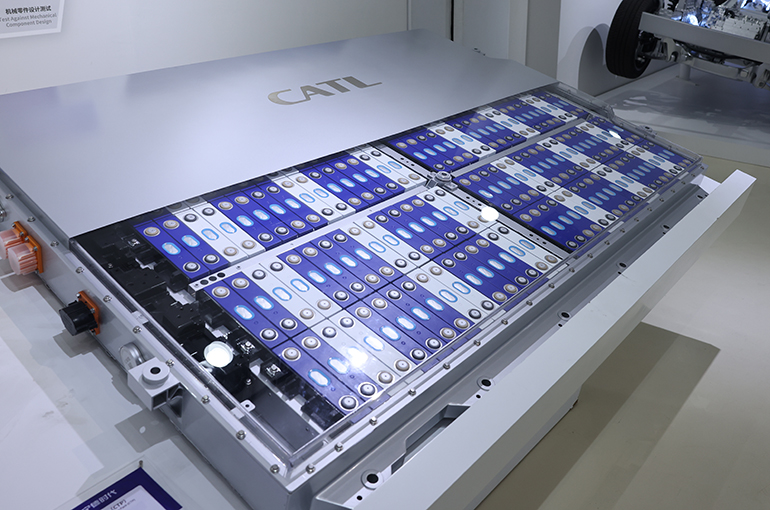 Chinese Scientists Make Solid-State Lithium Battery Breakthrough, Opening Door to Mass Production
Chinese Scientists Make Solid-State Lithium Battery Breakthrough, Opening Door to Mass Production(Yicai) Oct. 9 -- A research team led by Huang Xuejie, a professor at the Chinese Academy of Sciences' Institute of Physics, is developing the world's first technology to achieve "zero external pressure sulfide electrolyte all-solid-state lithium battery," which offers a solution for such batteries' interface challenges that hinder their mass production.
The tech, co-developed by the team, the Huazhong University of Science and Technology, and the CAS' Ningbo Institute of Materials Technology and Engineering, uses an innovative anion regulation mechanism to achieve tight contact between the lithium electrode and sulfide solid electrolyte in solid-state lithium batteries, providing key technical support for the practical use of the batteries, Huang said in an interview with Yicai yesterday.
Solid-state lithium batteries, hailed as the "grail" of next-generation energy storage technology, have long faced a challenging problem: maintaining tight contact between the solid electrolyte and the lithium metal electrode. Traditional methods require constant pressure from bulky external equipment, making the batteries too large and heavy for practical use.
To address this challenge, the research team introduced iodide ions into the sulfide solid electrolyte, according to their findings published in Nature Sustainability on Oct. 7. During operation, these iodide ions move to the electrode interface under the electric field, forming an iodine-rich interface.
The interface can actively attract lithium ions, automatically filling all gaps and pores, maintaining tight contact between the electrode and electrolyte.
Prototype batteries prepared based on this tech have shown stable and excellent performance even after hundreds of charge-discharge cycles under standard testing conditions, far exceeding the level of similar existing batteries.
The technology could enable future batteries with energy densities exceeding 500 watt-hour per kilogram, potentially extending the battery life of electronic devices by at least twofold, Xinhua News Agency reported yesterday, citing Huang.
The breakthrough will accelerate the development of high-energy-density solid-state lithium batteries, which are expected to play significant roles in humanoid robots, electric aviation, electric vehicles, and other areas, providing safer and more efficient energy solutions, Huang pointed out.
The study fundamentally solves the key bottleneck problem that had hindered the commercialization of solid-state batteries, marking a decisive step toward their practical application, said Wang Chunsheng, a solid-state battery expert at the University of Maryland.
Editor: Martin Kadiev